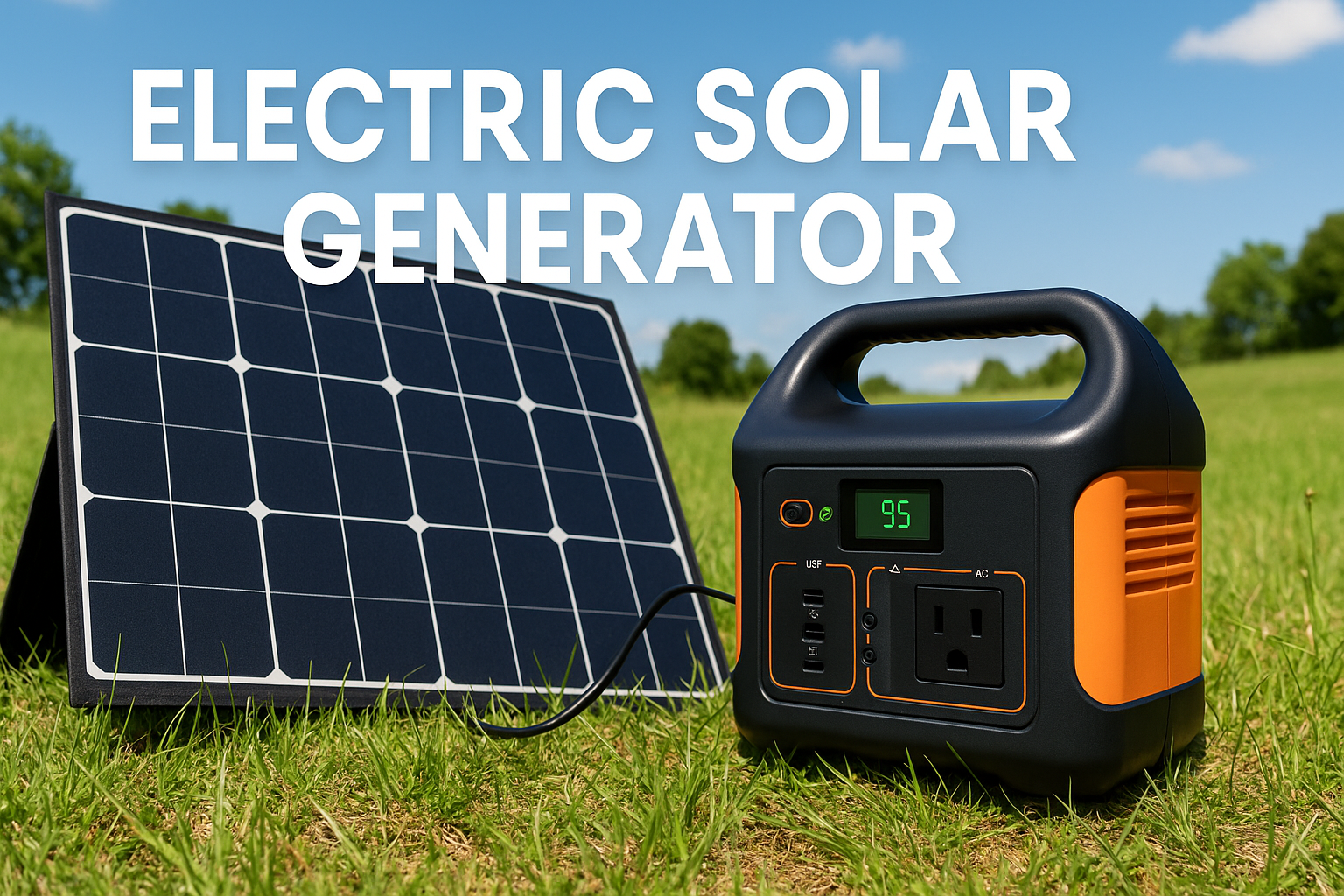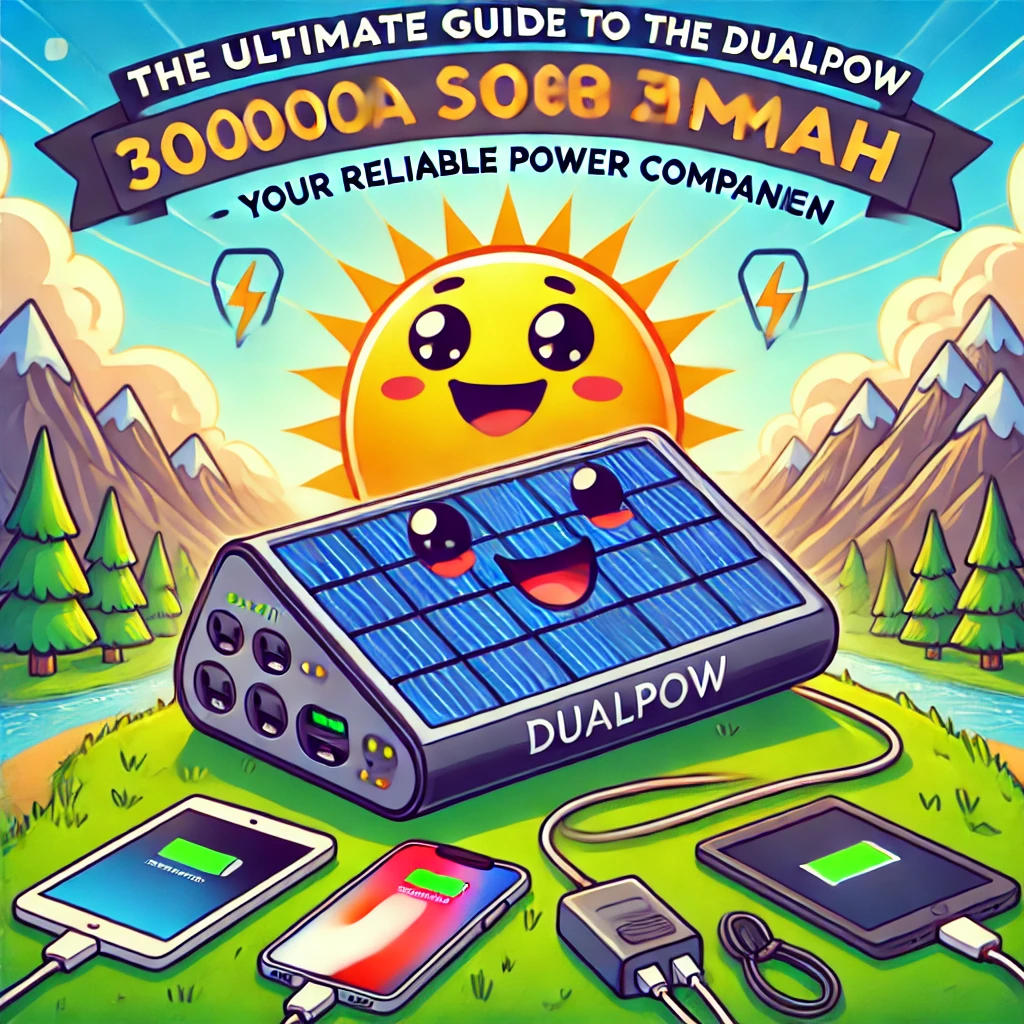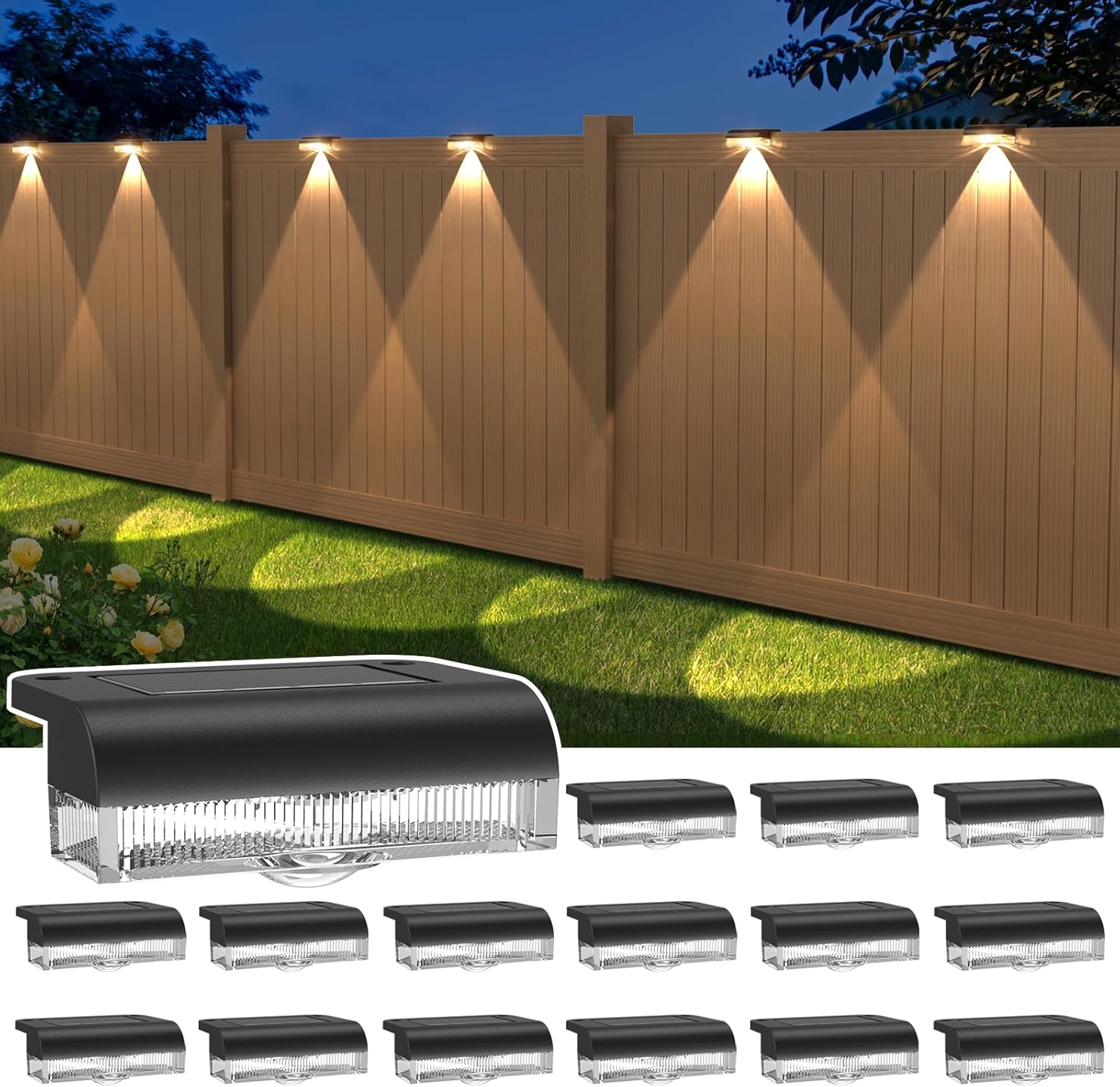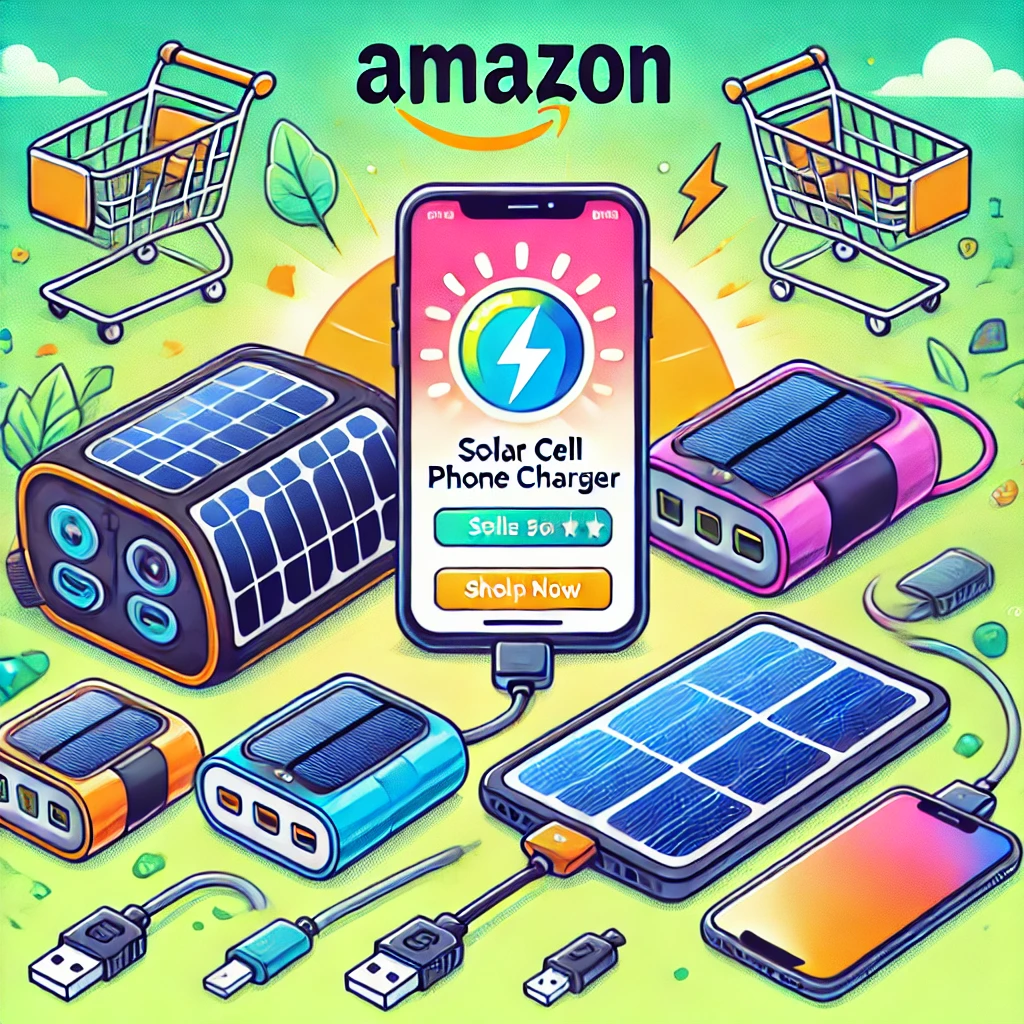As more people seek sustainable, off-grid power solutions for homes, RVs, campsites, and emergency use, electric solar generators are becoming an essential part of everyday energy planning. This comprehensive guide explores what electric solar generators are, how they operate, their pros and cons, types, real-world applications, and how to choose the right one for your needs.
What Is an Electric Solar Generator?
An electric solar generator is a device that captures solar energy via solar panels, stores it in a battery, and delivers it as usable electricity to power various electronic devices and appliances. Unlike traditional fuel-powered generators, solar generators operate silently, produce zero emissions, and require no ongoing fuel costs.
Core Components:
- Solar Panels: Collect energy from sunlight.
- Battery Bank: Stores the captured energy (commonly LiFePO4 or lithium-ion).
- Charge Controller: Regulates power from the panels to the battery.
- Inverter: Converts stored DC energy into usable AC power.
- Ports: Outputs for AC, USB, 12V DC, and more to charge or power devices.
How Do Electric Solar Generators Work?
The process is surprisingly simple:
- Solar Collection: Solar panels collect photons from the sun.
- Energy Conversion: The charge controller manages the flow to prevent battery overcharging.
- Energy Storage: Batteries store the energy for later use.
- Power Delivery: The inverter changes DC battery power into standard AC power for your devices.
With advancements in technology, this system now supports everything from phones to refrigerators to CPAP machines and even power tools.
Benefits of Using an Electric Solar Generator
1. Eco-Friendly and Sustainable
Solar generators use renewable energy, contributing to reduced carbon emissions and climate change mitigation.
2. Silent Operation
Perfect for camping or use in quiet neighborhoods — no engine noise.
3. Low Maintenance
No moving parts = fewer chances of mechanical failure. No oil changes, spark plug replacements, or fuel filter cleaning.
4. Long-Term Cost Savings
After initial investment, sunlight is free. No need to spend on gasoline or diesel.
5. Portability
Most models are compact and lightweight, perfect for outdoor adventures.
6. Backup Power Solution
Excellent for blackout emergencies or as a UPS for sensitive electronics.
Key Types of Electric Solar Generators
1. Portable Solar Generators
- Ideal for camping, RVs, and light power needs.
- Lightweight, compact, and easy to transport.
- Example: Goal Zero Yeti 500, EcoFlow River Mini.
2. Home Backup Solar Generators
- Large battery capacities (2,000Wh+).
- Used during outages to power refrigerators, routers, lights, etc.
- Example: Bluetti AC200MAX, Anker PowerHouse 757.
3. Expandable Solar Generator Systems
- Modular design lets users connect extra batteries or solar panels.
- Great for off-grid cabins or larger power setups.
- Example: EcoFlow Delta Pro, Vigorpool Captain 1200 with parallel expansion.
Detailed Specs to Consider Before Buying
1. Battery Capacity (Wh)
How much energy can be stored? Higher Wh = longer runtime.
2. Power Output (W)
What is the max continuous power it can deliver? Does it support high-wattage appliances?
3. Battery Chemistry
- LiFePO4 (Lithium Iron Phosphate): Long lifespan (3000+ cycles), stable.
- Lithium-ion: Lightweight, compact, decent cycle life.
- Lead-acid: Cheap but heavy and lower cycle life.
4. Recharge Options & Speed
- AC Wall Outlet (fast charging options like X-Stream or HyperFlash).
- Solar Charging (check for MPPT controllers for efficiency).
- Car Charging (slower but good in transit).
5. Port Variety
- AC Outlets (Pure Sine Wave preferred for sensitive electronics)
- USB-A, USB-C PD, 12V Car Ports, Wireless Charging Pads
6. Weight and Portability
- Camping? Go below 15 lbs.
- Home backup? Weight may not matter as much as capacity.
Best Brands on the Market (2025 Edition)
1. EcoFlow
- Known for fast charging and modular expandability.
- Example: DELTA 2 Max, RIVER series.
2. Anker SOLIX
- Reliable and rugged with a 10-year LiFePO4 battery life.
- Example: SOLIX F1200 (PowerHouse 757).
3. Goal Zero
- Durable and user-friendly.
- Example: Yeti 500X, Yeti 1500X.
4. Bluetti
- Massive storage, solar-friendly, and powerful.
- Example: Bluetti AC180, EP500.
5. Vigorpool
- Feature-rich and budget-friendly.
- Example: Captain 1200 with app control.
Real-World Use Cases
1. Off-Grid Living
Solar generators provide energy independence, especially when paired with a solar panel array.
2. Camping & Van Life
Portable models can power laptops, drones, electric coolers, lights, and small cooking appliances.
3. Emergency Backup
Keep essentials running during a power outage — phones, lights, fridge, medical devices.
4. Jobsite and Workshop Use
Some 1200W+ models can handle drills, saws, and more — great for mobile work.
5. Events & Filmmaking
Silent, clean power for outdoor productions, parties, or wedding lighting setups.
Solar Integration: Panels, Positioning & Pairing
1. Wattage Match
Match your solar panel output to your generator’s max input. Exceeding that won’t improve charging speed.
2. MPPT Controllers
Look for MPPT-enabled generators. They extract max power even in varying light conditions.
3. Angle & Exposure
Tilt your panels toward the sun at the correct angle (based on your latitude) to maximize efficiency.
4. Compatibility
Use manufacturer-recommended panels or ensure the voltage/amperage falls within your generator’s supported range.
FAQs About Electric Solar Generators
Q1. Can I run a refrigerator with a solar generator? Yes — if your generator supports 600W+ continuous output and has 1000Wh+ capacity.
Q2. Do solar generators work at night? They don’t charge at night, but stored energy can be used anytime.
Q3. How long do solar generators last? LiFePO4 models often last 10+ years (3000–5000 cycles).
Q4. Can I charge the generator while using it? Yes, many models support pass-through charging.
Q5. Are they waterproof? Most are not. Use under shelter or buy a weatherproof case for outdoor use.
Q6. How fast can they charge? Depends on the model — fast chargers can reach 80% in 1 hour from AC.
Q7. What size do I need? For phones/lights: 300Wh. For refrigerators: 1000Wh+. For whole-house backup: 2000Wh+ with expansion.
Conclusion: Is an Electric Solar Generator Worth It?
Absolutely. Whether you’re preparing for blackouts, embracing van life, or just want sustainable backup power, electric solar generators are a smart, reliable, and eco-conscious investment. Choose one based on your power needs, portability preferences, and expansion plans. With the solar tech market evolving rapidly, there’s never been a better time to invest in clean, quiet, renewable power.




